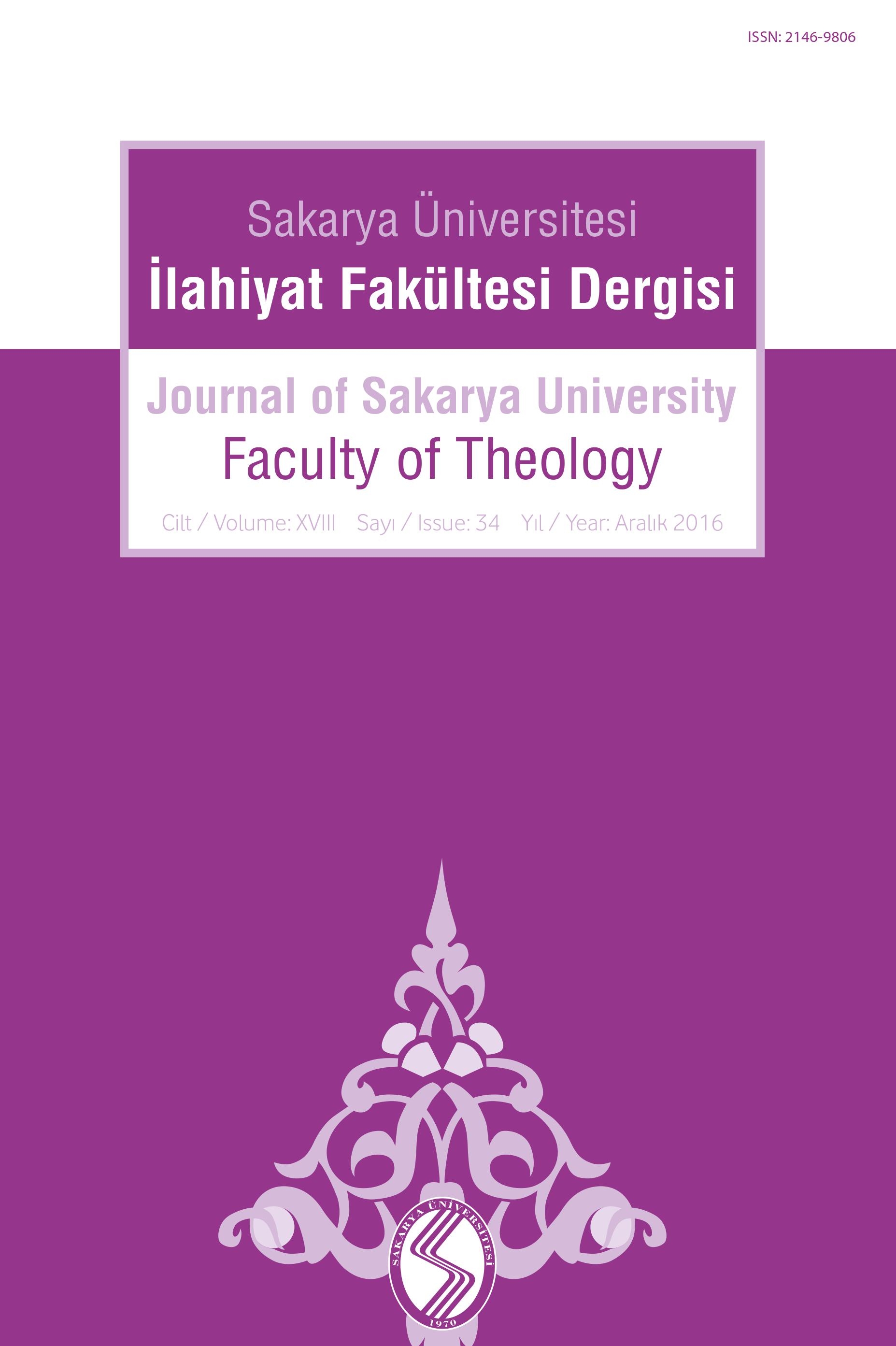AYNÎ’NİN “UMDETÜ’L-KÂRΔDE HANEFÎLERİN AMEL ETMEDİĞİ HADİSLERİ YORUMLAMA YÖNTEMİ (KİTÂBÜ’S-SALÂT ÖRNEĞİ)
Al-ʿAynī’s Interpretation of Prophetic Sayings (Aḥādīth) out of Practice of Ḥanafīs in “Umdat al-Qārī” (The Example of Kitāb al-Ṣalāt)
Author(s): Erdinç Ahatli, Merve CoşkunSubject(s): Theology and Religion, Islam studies
Published by: Sakarya üniversitesi
Keywords: al-ʿAyni,Umdat al-Qārī; Ḥanafī; al-Bukhārī; Practice; Ḥadīth; Method
Summary/Abstract: In addition to his being a good muḥaddith, because he is one of the great scholars of the Ḥanafī school, al-ʿAynī is an important example for the classification of the muḥaddith-faqīh scholar, which is rarer in the Ḥanafī school than in other schools of Islamic law. On the other hand, given that Bukhārī’s Ṣaḥīḥ is regarded as the most reliable book after the Qur’an, since Ḥanafīs, who have been come under criticisms in many aspects in consequence of being ahl al-ra’y, such as opposing to authentic prophetic sayings (aḥādīth) and practicing with weak prophetic sayings, have not practiced with some prophetic sayings in Bukhārī’s Ṣaḥīḥ, criticisms have been intensified against them and they had been accused further in regard to practicing with ḥadīth. In the hope of being a response for the claims in question, this article examines how ʿAynî, who had twice been a Ḥanafī judge during his life, assesses these ḥadīths with both his identity of faqīh and muḥaddith and how he responses to the criticisms directed against Ḥanafīs.
Journal: Sakarya Üniversitesi İlahiyat Fakültesi Dergisi (SAUIFD)
- Issue Year: 19/2017
- Issue No: 35
- Page Range: 49-75
- Page Count: 27
- Language: Turkish

